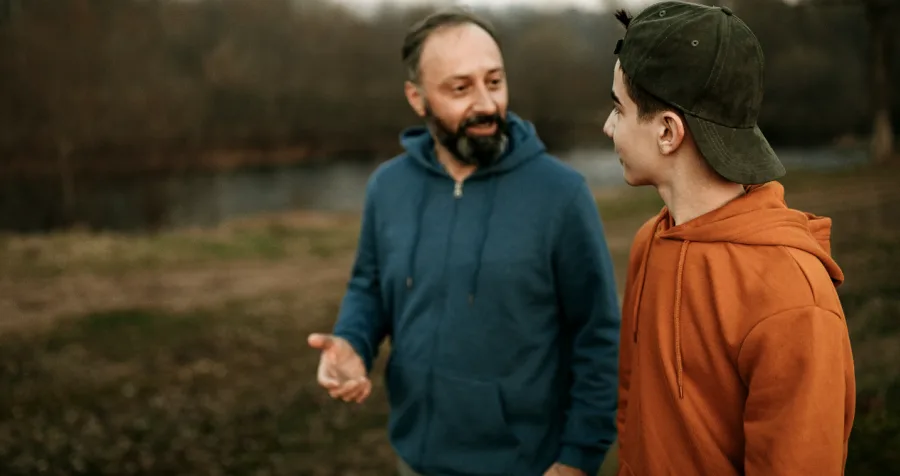Gambling and the teenage brain

The amygdala and the prefrontal cortex
The amygdala is the part of the brain that’s associated with emotions, immediate reactions, and snap decisions — often referred to as ‘fight or flight.’ The amygdala, which develops between the ages of 9 to 11, is responsible for identifying and processing emotionally important or motivationally relevant information. The amygdala is continually checking the environment to evaluate safety. When safety is perceived, the rest of the brain can focus on learning and memory. If a threat is perceived, the amygdala communicates this to the prefrontal cortex, the higher level processing section of the brain that starts developing from the age of 15 to 25.
The prefrontal cortex is also responsible for functions such as impulse control, planning, understanding consequences, and critical thinking. The prefrontal cortex continues to develop until the mid-20s s, so it is unable to exert complete top-down control over the amygdala during adolescence or young adulthood.
Youth participation in risky behaviours
The appeal of new experiences, the competition, and the desire to win can heighten emotions and lead youth to participate in risky activities, such as gambling.
“That new experience or experimentation is helping their brain development,” says Dua Fatima, Youth Outreach Specialist for the YMCA Youth Gambling Awareness Program (YGAP). “But it may also mean that they’re more likely to feel that they can control chance-based activities, such as betting on sports teams. So they may keep going in pursuit of a big win.”
Studies in developmental cognitive neuroscience indicate that youth are more comfortable than adults in accepting offers when odds are unknown. They may be aware of the potential harms or consequences of their behaviours, but are less sensitive to these potential consequences or may minimize their potential impact. As a result, youth are more likely to participate in risky activities such as gambling.
When it comes to decision-making, the prefrontal cortex works like brakes in a car, while the ventral striatum acts like a gas pedal (the amygdala and ventral striatum are two crucial brain regions involved in emotion, stress, and reward-processing).
“And at that stage of development, the gas pedal is more enticing than the brakes. As youth continue to participate in risky activities, the negative emotions associated with risk-taking —such as guilt, fear, or shame — decreases which, in turn, allows them to continue risk-taking. This could potentially develop into a problematic habit,” says Fatima.
Supporting healthy brain development
Youth participate in these activities because their brain requires these experiences in order to continue learning and developing. If we know that experimentation is required for the maturing brain to develop, we should look for opportunities to encourage youth participation in new experiences in a safe way. Examples of these opportunities include encouraging youth to try a new sport or activity that is outside of their comfort zone, such as acting, a different art form, or a new sport.
It is also important to promote the development of protective factors against problem gambling. Protective factors are conditions that are associated with a decreased likelihood of developing a problem, regardless of exposure to risk factors. Some examples of protective factors for youth can include:
- Providing mentorship
- Participating in conventional activities
- Learning coping strategies
- Encouraging school connectedness
- Practicing mindfulness
- Developing social-emotional learning skills.
How can YGAP help?
One way YGAP promotes the development of protective factors is through Youth Engagement (YE) projects. Youth Outreach Workers across the province implement YE projects with a group of youth between the ages of 9 to 15, when their brains are extremely “plastic”, and they are drawn to new experiences. Within YGAP’s YE projects, youth are empowered to participate in the planning, decision-making, and execution of a project of their choice, within their community, while developing valuable skills. They can try a new experience, work with youth they may have never worked with before, take on an unfamiliar role within a project, and learn more about themselves.
The YGAP Youth Outreach Worker ensures that a safe, supportive environment exists for each participant, so they can comfortably explore and learn. They also act as a supportive, caring adult who provides effective support or mentorship to participants. Lastly, the YE project facilitates a sense of connectedness between participants and their communities.
Youth brain development is complex. The YE project is one component of the YGAP program that promotes the development of protective factors, while also encouraging the development of social-emotional learning and media literacy skills. To connect your youth group with a YE opportunity, contact one of Ontario’s YGAP Youth Outreach Workers. YMCA also offers free, interactive YGAP workshops for adults, to help them better support the youth in their lives.










